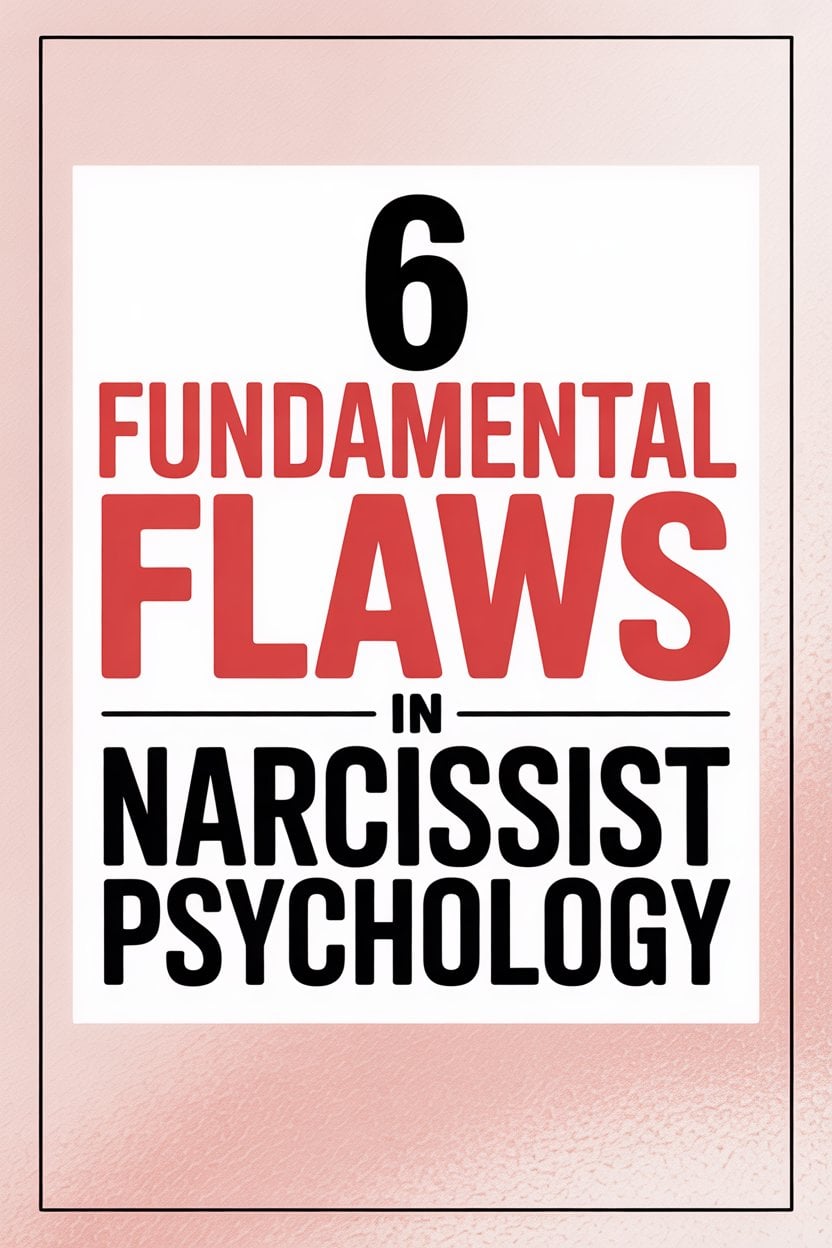Narcissists: the emotional equivalent of eating cotton candy for dinner. Looks appealing at first glance, empty calories underneath, and you wind up hungry, cranky, and questioning your life choices.
If you’ve had the pleasure (or the horror) of being entangled with a narcissist—romantically, professionally, or because you share DNA—you’ve probably noticed something’s a bit… off. Not just your patience, but the way they seem to function on a whole different operating system.
Let’s strip back the shiny exterior and examine those six quirks hardwired into narcissist psychology—the ones that make relating to them feel like trying to have a heart-to-heart with a brick wall.
1. An Identity That Shifts Like Wet Paint
Narcissists tend to think they are the main character in everyone’s story (and, oh, what a show). But deep down, their sense of self is about as stable as a house of cards at a toddler’s birthday party.
Their self-image is propped up by constant applause, admiration, and, ideally, a never-ending standing ovation. No cheers? Cue the existential panic. Criticism? Enter: Meltdown mode.
To avoid feeling worthless, they reinvent themselves on the fly—charmers one moment, martyrs the next, experts in whatever’s trending at the office or on TikTok.
For a partner, friend, or family member, this means you’re never quite sure which version of them will show up for dinner.
Or if they remember what they promised you last night. Or if they even remember your birthday (unless they can use it to get attention, of course).
2. Empathy Deficit That Would Alarm a Goldfish
If you’re waiting for a narcissist to genuinely understand your feelings, pull up a chair—this could take a while. Empathy isn’t just low on their list. It’s not even on the list.
They might be able to fake it, sure. After all, crocodile tears and dramatic sighs make for a good performance when the audience (that’s you) expects some reaction.
But true empathy—the kind that makes you feel seen and soothed? That’s missing, replaced by a transactional approach: “I’ll care about your bad day if it’s somehow good for me.”
This flaw doesn’t just make arguments unbearable. It means your wins and losses rarely register with the weight they deserve.
You could win a Nobel Prize or stub your toe, and a narcissist’s reaction will always orbit their needs, not yours.
3. Accountability Is a Foreign Language
The phrase “I’m sorry, I was wrong” is about as common in the narcissist’s vocabulary as “I’ll take criticism gracefully.” (Translation: rare as hen’s teeth.)
Owning up to mistakes threatens the carefully crafted facade. If a narcissist admits fault, it’s like poking a hole in their hot air balloon, and down it goes.
Instead, blame gets scattered in all directions—partners, kids, coworkers, the weather, Mercury in retrograde. Anyone and anything but them.
This chronic evasion of accountability means apologies, when they arrive, tend to be the “I’m sorry you feel that way” variety. Genuine responsibility is off-limits. If you’re seeking closure, you might have better luck searching for Bigfoot.
4. Relationships Built on Sandcastles
Romantic, platonic, or familial—relationships built with narcissists are never quite anchored. The foundation is always at risk of being swept away by the next emotional high tide.
Narcissists crave connection, but only on their terms. Relationships are transactional, measured in units of admiration and control.
The moment a partner, friend, or relative stops providing ego-boosting fuel, the narcissist’s interest wanes, or worse, they retaliate with manipulation, cold shoulders, or outright ghosting.
Try to ask for reciprocity or, heaven forbid, emotional support, and notice how quickly the conversation turns back to their grievances—or their achievements.
Love, for them, is less a two-way street and more a one-lane highway with a toll booth.
5. Boundaries Are a Recommendation, Not a Rule
Personal boundaries to a narcissist are like traffic laws in a video game: quaint, easy to ignore, and only relevant when someone else enforces them.
Pushback on their demands? Expect fireworks. Assert your needs? Cue the guilt-tripping, gaslighting, or, if they’re feeling creative, a grand monologue about how you’re the real problem.
Their lack of respect for boundaries comes from a belief that their desires are central, and everyone else’s are, at best, optional extras.
If you’re hoping they’ll grow out of boundary-busting behaviors, keep hoping. For narcissists, respecting limits smacks of vulnerability and loss of control—two things they avoid with Olympic-level skill.
6. Self-Awareness Stuck on the First Level
Narcissists read self-help books the way cats study algebra: with utter confusion and zero intent to change.
The idea that they might be the problem? Blasphemy. Personal flaws are projected onto others, or explained away as the fault of a difficult world that simply can’t appreciate their greatness.
This lack of insight creates a feedback loop—a frustrating one for anyone who cares about them—where growth becomes impossible.
Try to have a meaningful conversation about patterns or recurring issues, and watch the subject change so fast it’ll give you whiplash. “Growth mindset” is for other people. Narcissists are already perfect, thank you very much.
Turning the Light Back on Yourself
Living with or loving a narcissist is an endurance sport—one with few medals and a lot of emotional pulled muscles. But their flaws don’t have to become your burden.
Start by noticing which of these six patterns pop up most often in your relationship. Is it the vanishing empathy, the missing apologies, or the uncanny ability to make your boundaries sound like unreasonable demands?
Knowledge is power, and calling these flaws by their names is the beginning of reclaiming your clarity (and maybe, just maybe, your sense of humor about the whole mess).
Where they zigzag, you can stay steady. Where they deflect, you can ground yourself.
And while you may never convince a narcissist their version of reality is cracked, you can absolutely build firmer boundaries, connect with empathetic souls, and refuse to shoulder all the blame.
Someone’s got to break the cycle, and spoiler alert: it won’t be them.
Keep your wits sharp, your expectations realistic, and if worst comes to worst, channel your inner goldfish—short-term memory can be a blessing when the drama gets old.


